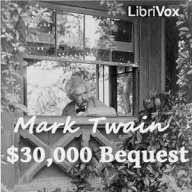.jpg)
Originally staged in the Teatro Español in 1901, Electra is a controversial Spanish drama that documents the trials and tribulations of its innocent heroine. Electra is a young woman of unknown parentage who is raised in a convent in France and, after the death of her mother Eleuteria, adopted by her aunt and uncle. Electra soon falls in love with the scientist Maximo, but an intricate web of rumors and lies threatens to ruin their relationship. In this play, Benito Pérez Galdós tackles a number of hot-button themes: fanaticism, superstition, social justice, rationalism, and the powers of science.
Cast list:
Electra: Amanda Friday
Evarista, wife of Don Urbano: Sarah Terry
Maximo: KHand
Don Salvador Pantoja: Negatron
The Marquis of Ronda: ToddHW
Don Leonardo Cuesta, a broker: Anthony
Don Urbano Garcia Yuste: Phil Schempf
Mariano, assistant in the laboratory: Eden Rea-Hedrick
Gil, a mathematician: Availle
Balbina, an old servant: Etel Buss
Patros, a young servant: CJ Plog
Jose, an old manservant: om123
Sister Dorotea: Beth Thomas
A Workman: David Olson
The Shade of Eleuteria: Mary Kay
link to the free audiobook
 The Life, Adventures & Piracies of the Famous Captain Singleton is a "bipartite adventure story whose first half covers a traversal of Africa, and whose second half taps into the contemporary fascination with piracy. It has been commended for its depiction of the homosexual relationship between the eponymous hero and his religious mentor, the Quaker, William Walters." (Summary by Wikipedia).
The Life, Adventures & Piracies of the Famous Captain Singleton is a "bipartite adventure story whose first half covers a traversal of Africa, and whose second half taps into the contemporary fascination with piracy. It has been commended for its depiction of the homosexual relationship between the eponymous hero and his religious mentor, the Quaker, William Walters." (Summary by Wikipedia).![Rapid Ear Movement [Free Audiobooks]](https://blogger.googleusercontent.com/img/b/R29vZ2xl/AVvXsEi6_k_POvyCRgw4EwtB3xrocwNbeo55BeFhvvbTRiYQh9rowQis9BbvBeS-aFCXj4dlQW4UcTZxdoK5_CIw8Z6UrsWFeAbTD24rBJIv3ERyEsIudygBunsM3bHIWQvrzVGJ9HlPZZ7tHzCM/s1600/rapid+ear+movement.jpg)








.jpg)
.jpg)










.jpg)



















%2B%5Bby%2BArnold%2BBennett%5D.jpg)